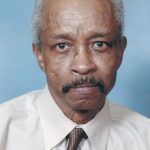Rickwood Field in Birmingham. A night to remember ÎÞëÊÓƵ“ and maybe forget

Major League Baseball will go anywhere to collect new devotees.
Nothing wrong with that.
Baseball has been periodically taking its show on the road since the New York Mets faced off against the San Diego Padres in Monterrey, Mexico in August of 1996.
Already this season, the L.A. Dodgers played the San Diego Padres in Seoul, Korea; the Houston Astros and Colorado Rockies played in Mexico City; and the Philadelphia Phillies faced off against the New York Mets in London.
Later this summer, in August, there’ll be that annual pilgrimage to Williamsport, where major leaguers will share their enormous popularity with Little Leaguers from around the world during the Little League World Series.
Baseball’s leading home run hitter, Aaron Judge, will lead his New York Yankees against the Detroit Tigers in a must-see game – if you watch only to see how far Judge can hit the ball into the nearby countryside.
Last month, Major League Baseball focused its Klieg lights on what was once known as “Slag Pile Field,” in Birmingham, Ala.
They used to call it “Slag Pile Field,” ’cause some folk who couldn’t afford to buy tickets for the games there, would sit on the high stacks of furnace slag that had been deposited just beyond the outfield fence.
It’s the once-famous Negro Leagues stadium – Rickwood Field – known to be the oldest baseball park in America.
The rich history of that ballpark, coupled with the rich history of the Negro Leagues provided the perfect backdrop for an early summer contest between the San Francisco Giants and the St. Louis Cardinals.
The night would have been much sweeter, though, if the guest of honor had been present.
Unfortunately for everybody, Willie Howard Mays, Jr. died just two days before the game.
For that evening, Mays would have been the personification of a bridge between the Negro Leagues and the Major Leagues. (Mays played for the Birmingham Black Barons from 1948-1950.) He became a legend in both.
Mays and the many Negro League veterans who lined the basepaths during the pre-game festivities were designed to give tributes to a group of athletes who had long been overlooked.
These Major League games in small venues like the ones in Williamsport and the cornfields of Iowa in those “Field of Dreams” games, remind us of how wonderfully intimate the game of baseball can be.
The San Francisco Giants play their home games at Oracle Park – with its 40,800-seat capacity. The St. Louis Cardinals play theirs at Busch Stadium which seats 46,000.
The seating capacity at “Slag Pile Field,” is only 10,800.
So small that the fans in the stands could easily hear every “strike” and “ball,” every “safe” and “out” by the all-black umpire crew that had been recruited for that special night.
Everything was in place for a wonderful evening of sepia-toned, Negro League nostalgia – except for one thing: There were hardly any black players on the field during the game.
Oh, the Fox Network announcing crew did its best to deliver the flavor of the game to TV watchers at home. It told a compelling story about the travails of African-American ball players who were forced into baseball’s vicious apartheid, and how they still thrived after they were accepted into the Majors.
But when the Fox crew needed to show how important it was that baseball’s color line had been broken, there was only one black player on the field (between both Major League teams) in Birmingham.
The Cardinals’ shortstop Masyn Winn was interviewed, because he is that one black ballplayer.
Gone are the days of Jackie Robinson, Willie Mays, Hank Aaron, Willie Stargell, Rickey Henderson, Barry Bonds, and Ken Griffey Jr.
Black kids have found football (The NFL has 53% black players) and the NBA (70.4% of NBA players are black). Only 6% of the players in Major League Baseball are African Americans. On opening day, there were only 57 black players on Major League rosters.
STOP!
This is by no means a complaint.
It’s the lament of an older black fellow who loves a sport and wishes it well – everywhere.
Al Owens is a multi-Emmy Award winner, former reporter, and anchor for Entertainment Tonight, and 50-year TV news and newspaper veteran. E-mail him at freedoms@bellatlantic.net.

